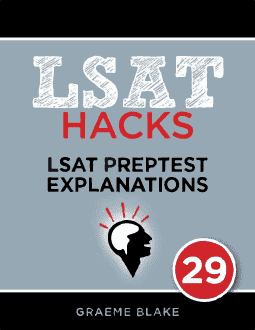DISCUSSION: The main idea is that some tribes can preserve their languages, despite various problems.
___________
- The difficulties aren’t the main point. The passage tells us that tribes can overcome these difficulties.
- This isn’t even true. The passage didn’t say whether cultures were at risk as well as languages.
- The last paragraph says that tribes recognize the value of oral forms of language. Oral culture isn’t mentioned. It doesn’t seem likely that tribes think culture is unimportant.
- CORRECT. This doesn’t cover the last paragraph, but it gets everything else. The tribes go through the difficulties because they recognize the value of their traditional languages.
- Huh? What inherent contradiction? If the tribes thought there was an inherent contradiction in writing down oral languages, they wouldn’t bother with written languages.


Hi Graeme,
I’m really confused as to why answer E is wrong… If you’re sidestepping a contradiction, wouldn’t you be doing exactly what people think is not plausible. In line 51-54 it says that there is belief that writing traditional language is unnecessary, and this whole passage is “sidestepping” that belief by showing that you can as long as you address some key issues.
Also, I do see why D is correct but I thought E was a more all-encompassing answer.
Lmk, thanks!
A “contradiction” suggests two ideas that are opposed to one another. The passage is not saying there’s an inherent opposition between oral and written language; it’s just saying that there are some difficulties involved in transmitting a primarily oral language to its written form, and that to aim to find a written language that is completely equivalent to its oral counterpart is misguided. That’s very different than saying that you can only have a written version of a language or an oral version, because one cannot exist if the other exists (that is, a “contradiction”).